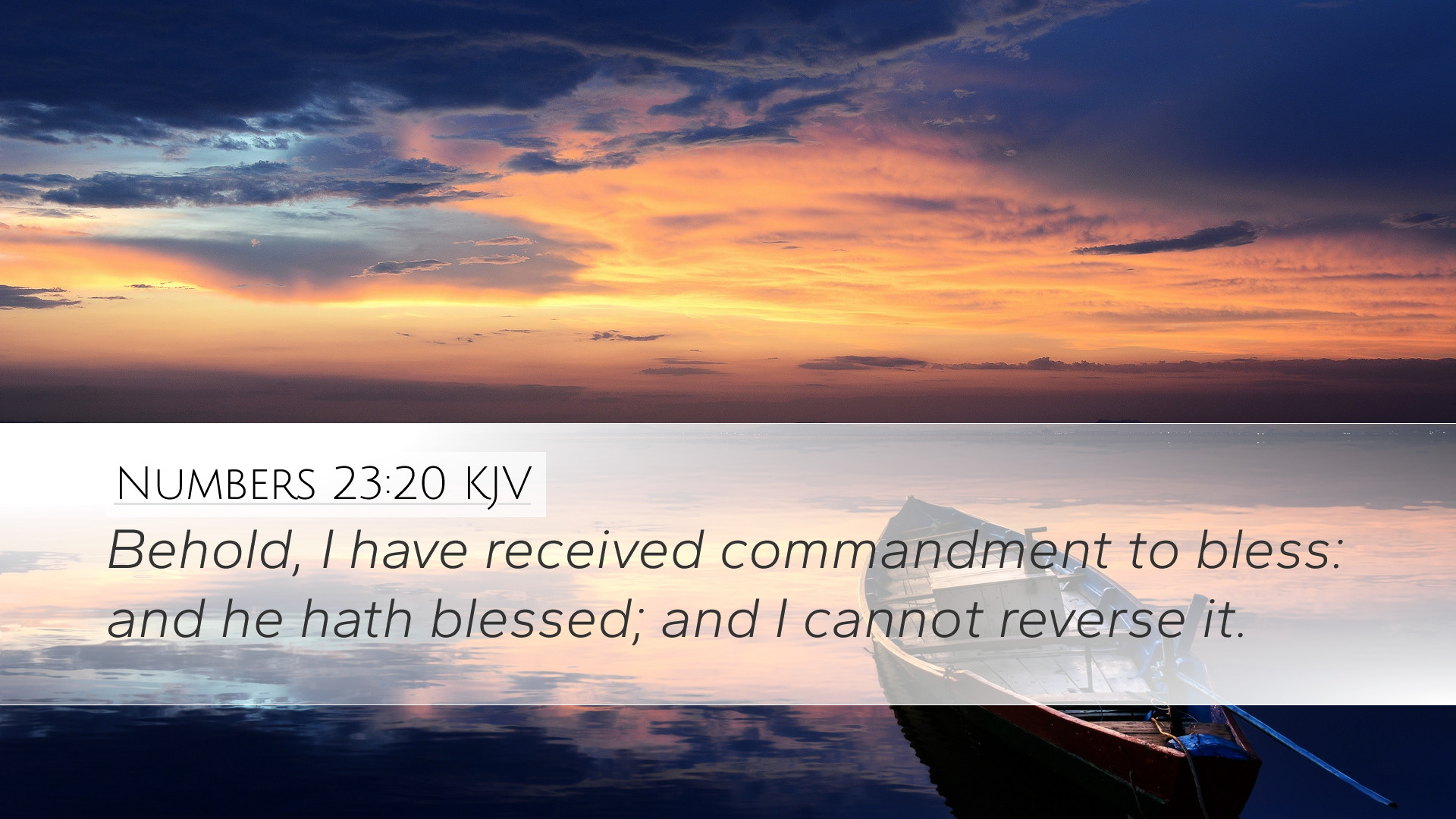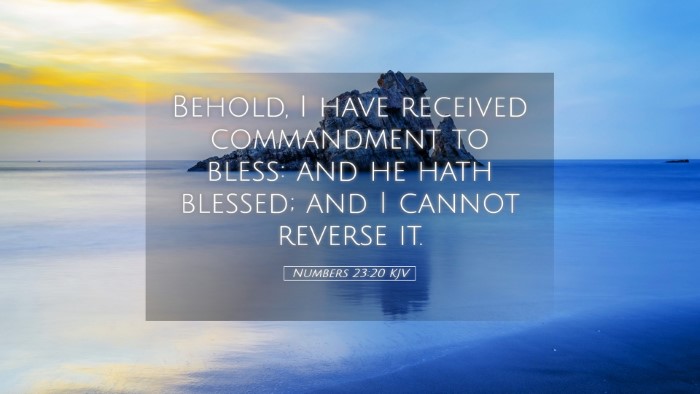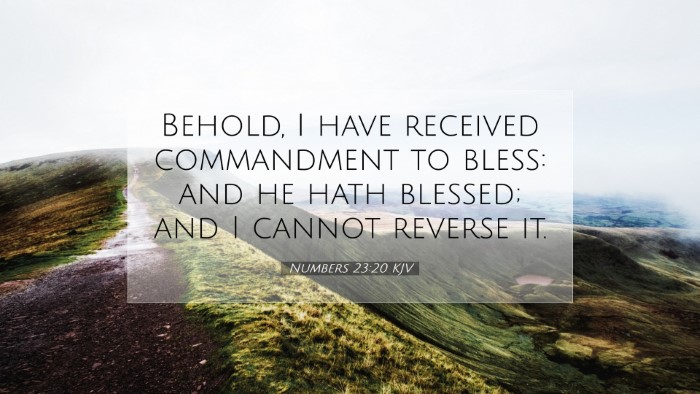Commentary on Numbers 23:20
Numbers 23:20 reads: "Behold, I have received commandment to bless: and he hath blessed; and I cannot reverse it." This verse captures a profound moment in the narrative of Balaam, a prophet who is called upon to pronounce a curse against Israel but ultimately finds himself compelled to bless them instead. This commentary draws insights from notable public domain theologians including Matthew Henry, Albert Barnes, and Adam Clarke to explore the theological implications of this verse.
Contextual Background
The events surrounding this verse unfold during the Israelites' wilderness journey, as they approach the Promised Land. King Balak of Moab, fearing the growing power of Israel, seeks out Balaam, a recognized prophet, to curse the Israelites. This context is crucial for understanding the weight of Balaam's declaration in verse 20.
The Nature of Divine Blessing
From the outset, this verse articulates a fundamental truth about God’s declarations: once He has chosen to bless, no human endeavor can overturn it. Matthew Henry emphasizes the sovereignty of God in His blessings, ultimately asserting that what God has decreed cannot be undone. This assurance is intended to comfort believers, illustrating God’s unwavering commitment to His people, and demonstrating that divine intention supersedes all human schemes.
Balaam's Role and Response
Albert Barnes provides insight into Balaam's complex character. Although he is a non-Israelite, Balaam possesses a unique understanding of God's authority. Upon receiving the command from God to bless, he acknowledges God's power and his own limitations. Balaam’s inability to reverse God's blessing indicates a shift in his role; rather than being an agent of cursing, he becomes an unwitting messenger of divine favor.
Theological Implications
-
Divine Sovereignty:
The assertion of blessing serves as a powerful reminder of the sovereignty of God. No plans of men can thwart His purposes. Adam Clarke elaborates on this by noting how God's will prevails, highlighting the impotence of Balak's attempt to manipulate Balaam for his own ends.
-
God’s Faithfulness to His People:
This blessing is a significant testament to God’s unbreakable covenant with Israel. As Barnes notes, it reaffirms the identity of Israel as His chosen people, against whom no weapon formed shall prosper. It points to the nature of God's grace—unmerited and inexorable in its impact.
-
The Failure of Human Manipulation:
The passage illustrates the futility of human attempts to manipulate God’s intended outcomes. Balak's desire to curse Israel was rooted in fear and misunderstanding of God's nature. Clarke remarks that true prophecy cannot be bought or coerced; it flows from divine command alone.
Applications for Today’s Believers
For pastors, students, and theologians alike, this passage presents several poignant applications. First, it urges believers to trust in God’s promises despite external pressures. Just as Balaam was constrained by God’s blessing on Israel, so too are believers assured of their position in Christ, secure from any spiritual curse.
Additionally, it invites reflection on the role of the prophetic voice in today's church. Teachers and preachers are called to declare God’s truth despite societal pressures to conform to different narratives. In conveying the Gospel, the integrity and authenticity of the message must reflect God’s immutable purpose.
Finally, this verse encourages believers to recognize the significance of God's blessings. They are not trivial but encapsulate God’s intention for good, prosperity, and protection over His people. Each blessing is a reminder of God’s presence and faithfulness in the journey of life.
Conclusion
In Numbers 23:20, we discover a rich tapestry of theological insight emphasizing God’s unshakeable sovereignty, the power of His blessing, and the futility of attempts to hinder His divine will. As we navigate our own lives and ministries, may we be reminded of the profound truth that what God has blessed cannot be undone, inspiring us to walk confidently in our identity as His chosen people.


